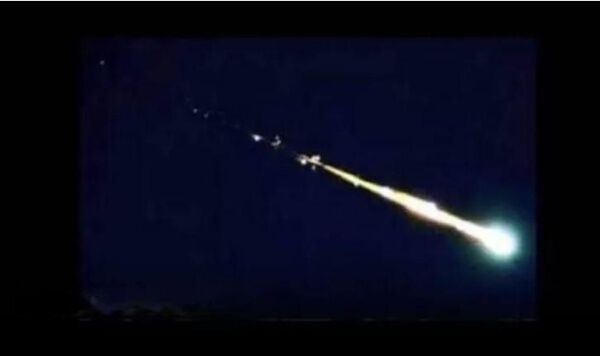Mysterious green fireball lights up Thailand’s skies, sparking curiosity

A mysterious green fireball illuminated the skies last night across various regions in Thailand, prompting widespread online discussion and speculations about its origin.
At approximately 9pm, numerous citizens reported sightings of a large, bright green light streaking through the sky, resembling a meteor or a falling star.
The Thai Astronomical Society, a key authority in the field, acknowledged the event on its social media page.
“Over the past hour, many of our followers have reported seeing a large, bright green fireball visible across several provinces in the central region. The Thai Astronomical Society is currently verifying the facts and will provide updates periodically.”
This celestial event coincided with the position of the comet 12P/Pons-Brooks, which was highlighted by the society earlier in the day. According to their post, the comet, which orbits Earth every 71 years, similar to the more famous Halley’s Comet, was becoming increasingly visible to the naked eye through binoculars in the western sky shortly after sunset. However, there has been no confirmation whether the green light was indeed comet 12P/Pons-Brooks, reported Sanook.
The Thai Astronomical Society’s swift response underscores the vibrant interest in celestial phenomena among the Thai public. As they endeavour to unravel the mystery behind the green fireball, enthusiasts and experts alike eagerly await a definitive explanation.
In related news, Thai astronomers unravelled the mysteries of the universe by uncovering 13 low-mass galaxies, each a celestial relic from the dawn of time. The James Webb Space Telescope, their cosmic peephole, allowed them to peer into the very fabric of the early universe.
In other news, the National Astronomical Research Institute of Thailand (NARIT) invited Thai citizens to witness the Geminids meteor shower, commonly known as the Gemini Twins meteor shower, which peaked on December 14 and continued into the early hours of December 15.
The spectacle was observed from around 8pm onwards, with an expected peak frequency after midnight of approximately 120 to 150 meteors per hour.
Latest Thailand News
Follow The Thaiger on Google News:


























